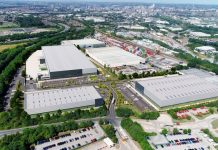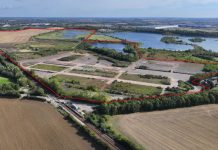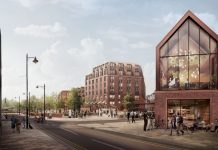Carl Durrant, JLL’s Birmingham-based industrial & logistics director suggests we need a radical new mindset to help shape our cities of tomorrow.
The speed of expansion of e-commerce is creating great challenges across the industrial & logisics sector as there is a growing realisation that the demand for what we call ‘last-mile logistics’ needs new solutions to keep pace with growing consumer demand for same day delivery services.
People’s shopping habits have changed for ever, and the prosperous cities of tomorrow will be those which develop new, efficient and sustainable models of urban logistics – as well as meeting housing need.
So how do achieve this? I believe the answer is to step back, to consider not simply the customer-facing ‘end’ of the e-commerce sector, but to study its supply chains in their entirety.
We’ve all heard people say there’s no need to re-invent the wheel … but in this instance that’s exactly what we do need.
Instead of regarding the out-of-town Big Box sector and the last-mile logistics niche in isolation, we must recognise that they are (almost always) different elements of the same process.
More importantly though, we need more joined up thinking within our cities, to adopt innovative strategies to help design and deliver new models of urban infrastructure and recognise that these are often integral to the growth of local economies.
At the moment – and nowhere is this more clearly seen than in Birmingham – local authorities around the country are trying desperately to increase housing supply, to catch up with the historically low levels over recent years and what may have been considered prime for logistics may now be thought prime for housing.
Inevitably, as such sites are converted to ‘resi’ uses, the pipeline of urban sites for potential last-mile logistics narrows, forcing e-commerce brands and their fulfillment operators steadily back away from their customers, and putting their delivery models under severe strategic pressure.
Birmingham’s new Mayor, Andy Street has a outlined a brownfield land first policy for housing, which will accelerate the trend already seen in London and other major urban centres, for old industrial/brownfield land to be released for new homes.
Yet many of those who clamour for new and affordable homes are the same ‘digital natives’ and devotees of online shopping who want delivery times to shorten.
It’s a dilemma not easy to resolve, but I think we are unusually well-positioned here in the West Midlands, because the WMCA is at its formative stage and the government’s new industrial strategy is also still under discussion.
We need to enter the debates about last-mile logistics and housing supply, to help ensure our future cities deliver the correct skill-sets and infrastructure to a sector which creates employment and wealth on an ever-growing scale.






















